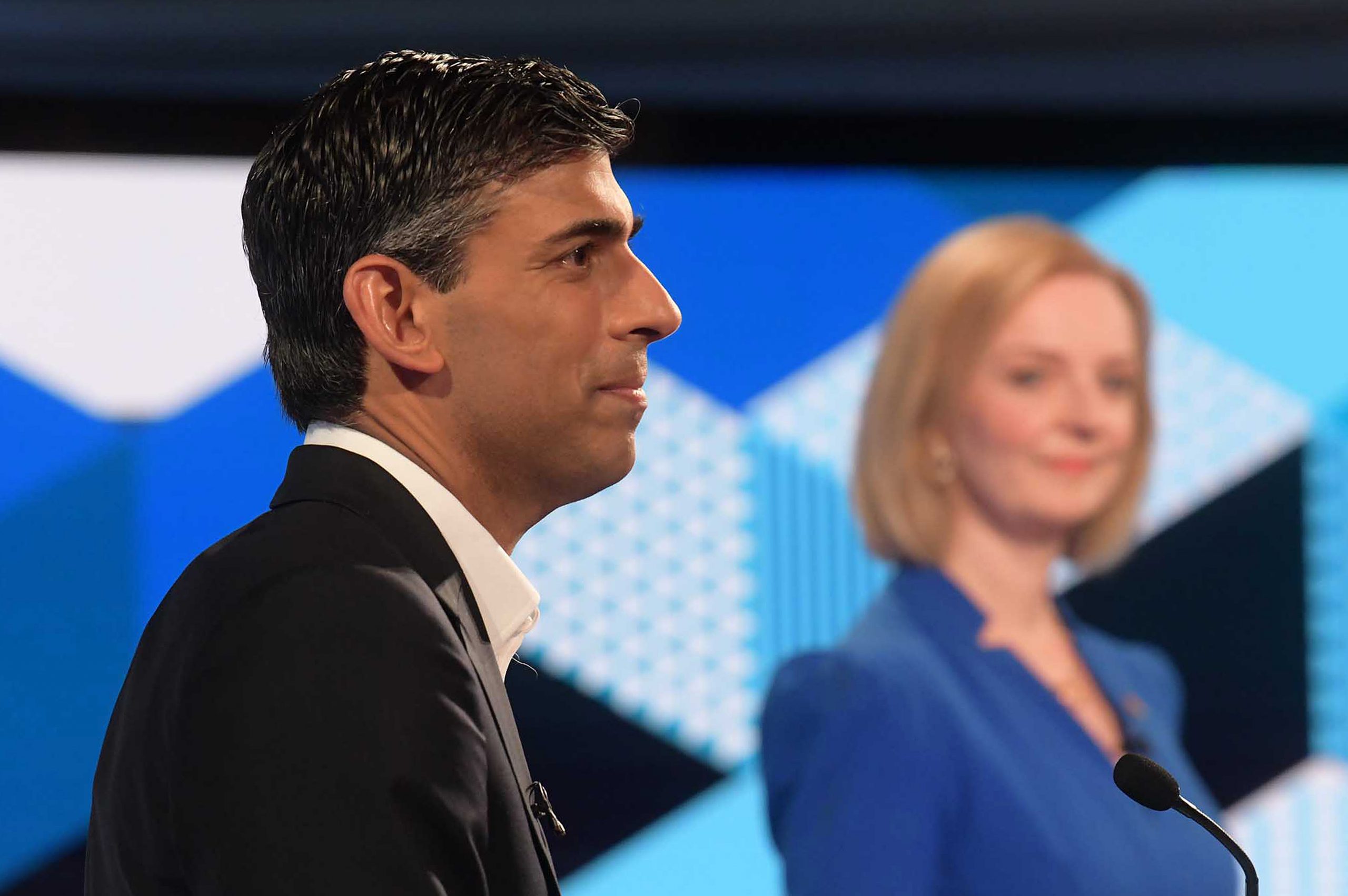On Sept 5, it will be announced that the next British prime minister will be an Indian Hindu man or a white woman. On July 20, Rishi Sunak, a Brit of Indian Origin, and Liz Truss emerged as the final two competitors for the premiership, out of an initial pool of 11 contenders.
Around 160,000 members of the Conservative Party will choose between Sunak and Truss, and the results of the vote will be announced on September 5. Whoever wins, diversity has already won in British politics.
In early July, 11 members of the Conservative Party entered the contest to be the next party leader and thus the next British Prime Minister. Of these 11 candidates, three were white men, four were men from ethnic minorities, two were white women and two were women from ethnic minorities.
In other words, white men constituted a small minority of the candidates while a majority, six, came from ethnic minorities. This was a departure from British history, where the overwhelming majority of prime ministers have been white Protestant men, reflecting the white Protestant majority in the UK.
If Truss wins, she will be the third female prime minister in Britain, after Theresa May and Margaret Thatcher. If Sunak wins, he will be the first British prime minister who is not white or Protestant.
The current British leadership selection is far more diverse than Singapore’s. No woman has ever been considered for prime minister in Singapore’s history. In 1988, then Singapore Prime Minister Lee Kuan Yew publicly said S. Dhanabalan was a good candidate for prime minister, but Singapore was not ready for an Indian prime minister.
Apart from David Saul Marshall, a Jewish chief minister of Singapore during the 1950s, all prime ministers have been men from the majority race in Singapore, Chinese. In the selection process for the fourth generation (4G) leader of Singapore, all three contenders were Chinese men, namely Ong Ye Kung, Chan Chun Sing and Lawrence Wong.
In April, Wong was chosen as 4G leader in a process that lasted three weeks, where 19 senior PAP members including several ministers voted for their top choice. Wong won with a comfortable majority of 15 out of 19 votes.
If the Conservative party adopted the same leadership selection process as Singapore’s ruling People’s Action Party (PAP), Sunak would have been the first Indian prime minister of the UK by now. By July 20 when two contenders for the post of British prime minister remained, Sunak garnered the votes of 137 Conservative Members of Parliament (MPs), while Truss got 113.
Moreover, Sunak has gained the endorsement of many heavyweights in his party.
On July 19, the Times, a British newspaper, published a glowing opinion column by William Hague, a former British State Secretary and former leader of the Conservative Party, saying Sunak would be a successful prime minister. Sunak has been endorsed by another former leader of his party, Michael Howard, who is also a former home minister. Two other former British State Secretaries, Jeremy Hunt and Dominic Raab, have endorsed Sunak, as has Ruth Davidson, a former Scottish leader of the Conservative Party, and UK Health Minister Steve Barclay.
Consider this hypothetical scenario in Singapore. Suppose Tharman Shanmugaratnam, a Singapore senior minister of Indian background, ran for prime minister. What if he gained the endorsement of many current and former ministers of Chinese ethnicity?
This hypothetical scenario is unlikely to happen, partly due to his age. At 65, Shanmugaratnam is 16 years older than Wong, who is 49. I hope race will not be another reason.
Shanmugaratnam is a worthy candidate for Singapore prime minister, given his global stature as evidenced by his appointments to international bodies like the World Economic Forum and United Nations, his deep grasp of economics and his eloquent oratory.
So is Singapore ready for an Indian prime minister, or a Malay or Eurasian prime minister? Is Britain ready for an Indian prime minister? There is a possibility that Truss might beat Sunak for the top job since some polls put her ahead of Sunak among Conservative party members.
The question of whether the Conservative party will accept an Indian prime minister is separate from the question of whether the British people at large are ready for an Indian prime minister. Even if the Conservative party will not accept an Indian prime minister, British voters of all political stripes may possibly support an Indian prime minister.
According to British media reports, one possible reason that Sunak may not win the support of most of his party is racism, while another possible reason is the perception that he backstabbed his boss, Boris Johnson.
Sunak and Sajid Javid resigned on July 5 as Chancellor and Health Minister respectively, with both issuing in public resignation letters that were critical of Johnson. Their resignations were a catalyst that sparked the resignations of more than 50 MPs. Under great pressure, Johnson announced on July 7 his impending resignation as British Prime Minister.
Thus, even if the majority of the Conservative party does not vote for Sunak, this may not be due to racism.
In parallel with the British case, the question should be asked on different levels. Is the Singapore leadership ready for a minority prime minister? Is the PAP ready for a minority prime minister? Are Singaporeans ready for a minority prime minister?
In the selection for the fifth generation (5G) leader of Singapore, I hope there will be women and minority candidates. Of course, whoever is chosen as the 5G leader should be based on merit, not race or gender. Certainly, future leaders of Singapore should not be chosen simply because they are Chinese men.
Toh Han Shih is chief analyst of Headland Intelligence, a Hong Kong risk consulting firm. The opinions expressed in this column are his own.

